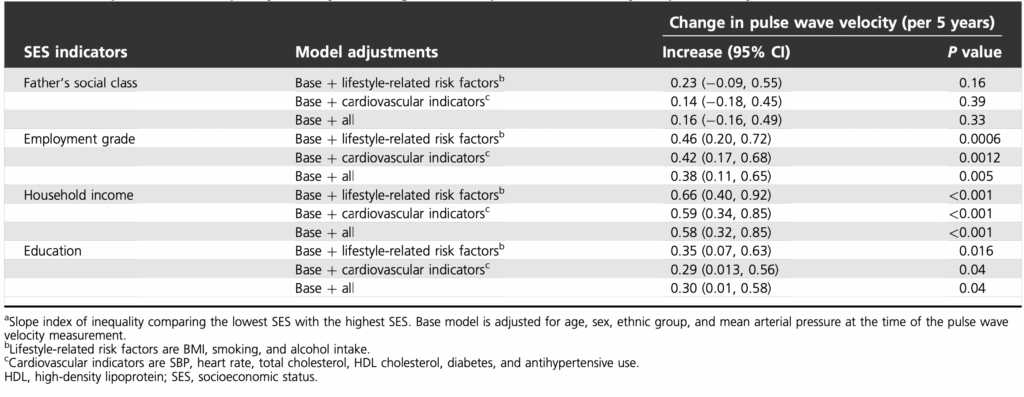Neighborhood Impacts on Healthcare Disparities

Studies show people who live in poor neighborhoods have a much high risk of cardiovascular disease.
While the quality of healthcare is generally improving across the United States, significant disparities remain across communities, according to the 2021 National Healthcare Quality and Disparities Report. In fact, the World Health Organization (WHO) says social determinants such as economic status, education, environment, community, residence, and healthcare access can impact a whopping 80% of health outcomes.
In a 2016 study involving 3484 British men and women published in the journal, Hypertension, researchers used SphygmoCor® Pulse Wave Velocity (PWV) to determine baseline and changes in aortic (arterial) stiffness over a period of five years. Lower socioeconomic status was associated with higher cardiovascular (CVD) risk, according to the study. The 2023 Jackson Heart study and Morehouse-Emory Cardiovascular Center for Health Equity also explored the correlation between neighborhood environment and CVD risk in 2,000 black adults. These researchers employed SphygmoCor Pulse Wave Velocity (PWV) and Pulse Wave Analysis (PWA) to measure augmentation index (AIx), an indicator of arterial stiffness. The Jackson Heart Study found that less violence, more social structure and better access to food were associated with a lower pulse wave velocity and augmentation index, indicating better arterial elasticity. In other words, the better the neighborhood, the better the cardiovascular outcome.
Changes in Pulse Wave Velocity Over Five Years





